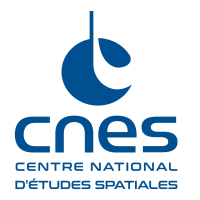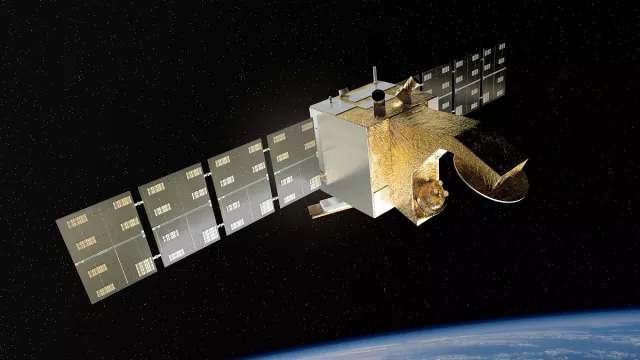In 2018, CFOSat (China-France Oceanography SATellite) was placed into Earth orbit to study ocean surface winds and waves. These data are enabling more reliable sea-state forecasts and yielding new insights into ocean-atmosphere interactions.
Key information
| Mission | Study of physical characteristics of wind and waves |
|---|---|
| Domain | Earth observation |
| Launch date | 29 October 2018 |
| Partners | CNSA, CNRS, IFREMER, SHOM, Meteo-France |
| Where | Sun-synchronous orbit at an altitude of 520 km |
| Lifetime | 3 years |
| Status | In operation |
Key figures
- 2 instruments
- 13.2-13.6-GHz radar frequency range
- 650 kg satellite mass
- 10 to 20% measurement precision for wavelengths between 70 and 500 m
Key milestones
- 29 October 2018: CFOSat launched by Long March 2C
- 30 March to 12 April 2016: Testing of flight models and ground segment
- 9 December 2010: Start of C/D development phase
- 22 July 2008: Start of B development phase
- 19 to 23 March 2007: Project inception in Beijing, China
Project in brief
The CFOSat satellite’s mission is to study the characteristics of ocean surface winds and waves.
Developed jointly by CNES and the China National Space Administration (CNSA), CFOSat is carrying two radar instruments: SWIM (Surface Waves Investigation and Monitoring), developed by CNES; and SCAT (wind SCATterometer), supplied by CNSA. SWIM’s six rotating beams enable it to measure wave properties (direction, wavelength, etc.), while SCAT measures wind intensity and direction. The data are downlinked to French and Chinese receiving stations.
These data are telling climatologists more about ocean-atmosphere exchanges, which play a key role in climate. CFOSat is also aiding more accurate marine forecasting and earlier warning of severe weather events like storms and cyclone. Conceived by the LATMOS atmospheres, environments and space observations laboratory in Paris and Guyancourt, the SWIM instrument was developed by Thales Alenia Space with oversight and funding from CNES.
Other mission partners include the French institute of marine research and exploration IFREMER, the French national weather service Meteo-France, and SHOM, the French naval hydrographic and oceanographic office.
CNES’s role
CFOSat was developed jointly by CNES and CNSA.
Contacts
Project Leader, Development and Exploitation
Deborah Hazan
E-mail: deborah.hazan at cnes.fr
Ocean subject matter expert
Yannice Faugère
E-mail: yannice.faugere at cnes.fr


